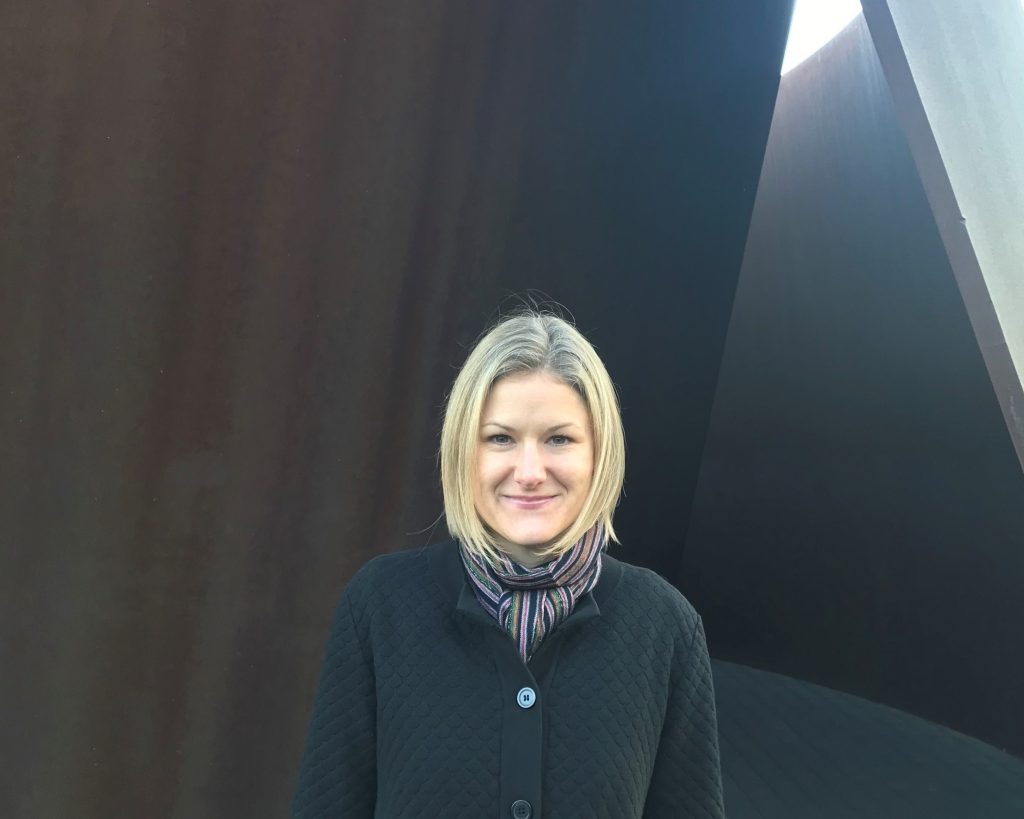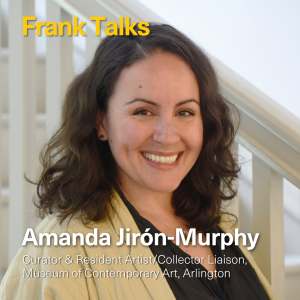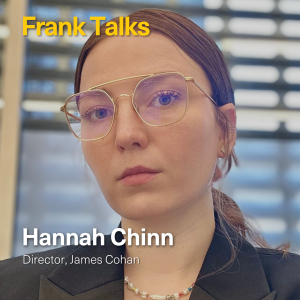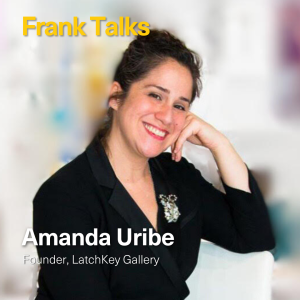Michelle Clair is an arts professional with twenty years’ experience working in museums and galleries, specializing in audience engagement, public programming, and visitor experience. She worked for eight years at the Corcoran Gallery of Art and College of Art + Design in Washington, DC, eventually serving as Director of Public Programs. In 2013, she joined the Visitor Experience Department at Glenstone Museum. Highlights of her Glenstone career include co-creating and managing the Emerging Professionals Program, and reinvisioning Glenstone’s hallmark visitor experience for the opening of a large expansion in Fall 2018. An avid museum and contemporary art enthusiast, she lives in Washington, DC.
What was your first job in the Arts and what was the most useful or important thing you learned in that experience?
My first job was at my dance studio in high school; I’ve been working in the arts ever since. In college and for a while in my 20s I worked in art galleries where I learned how to talk to people about contemporary art. I realized that was the most rewarding part of my job, not the thrill of a sale. Fortunately, I wasn’t working only on commission!
Tell us a little more about yourself. When did you realize you wanted to pursue a career in this industry?
Learning that Art History was a possible field of study in college was a huge revelation for me. I became passionate about the subject at Tufts University where I went to school. I had a love for museums that I had been growing since childhood and an interest in art history, so a career in an art museum became my ultimate goal. Once I graduated from college, I was disappointed to learn that museums tended to hire people who had prior museum experience they gained through unpaid internships. This practice excludes people who are not able to work for free, myself included. Part of the goal of Glenstone’s Emerging Professionals Program is to provide entry-level paid work experience for people looking to launch careers in the museum and arts fields.
What do you do now?
I am Senior Manager of Visitor Experience at Glenstone Museum in Potomac, Maryland. I co-created and manage Glenstone’s Emerging Professionals Program, among other responsibilities.
Where are you from and what is the arts community like there?
I live in Washington, DC, a great town for museums, and visual and performing arts! In addition to national/international museum exhibitions, there is a vibrant local arts scene in Washington and Baltimore. There are also wonderful smaller exhibition venues associated with arts non-profits, embassies, universities, and similar organizations.
Has where you come from shaped what you do in the arts today?
I grew up in the Washington, DC area and my parents often brought my brother and me to museums. When we were very young, we hated it; they had to drag us. Eventually, we loved those outings. This early exposure helped me grow my curiosity and feel comfortable in museums.
What is the best piece of advice you can give about working in the art world?
In my experience, no one starts out in the job they want for the rest of their life. Maintain a positive attitude and excel in the role you have. This helps build your professional reputation and network, and will help propel you to the position you want next. The art world is competitive, but I believe hard work and enthusiasm pay off.
What is one of the greatest accomplishments in your career so far? And what has been a challenge?
I’m very proud of the ambitious and varied schedule of public programs I oversaw at the Corcoran. Working hard and being creative, we did a great deal with a limited budget, which is often the challenge in the arts. My greatest professional accomplishment thus far is Glenstone’s Emerging Professionals Program, and it is still a work in progress. We are continually improving and evolving the program.
What is one of the weirdest things you have had to do on the job?
Anyone who has worked in theatre knows that live performances can get weird. Working in public programs was the same. Damage-control for a speaker who went to the bathroom with a live mic, discreetly coaxing someone back to the podium after they didn’t like the reaction of the audience, deciding whether to intervene when an artist lit a cigarette on stage in a crowded auditorium and then explaining it to the security department.
What do you think defines a good employee? And what defines a good boss?
For an employee, attitude is everything. That piece can’t be taught while many other job requirements can be. The best bosses I’ve had have been trusting, empowering, encouraging, clear about their expectations, and good communicators.
What is your advice for making yourself stand out in the workplace? Any good tips for giving a great interview?
I am impressed when people are polished as well as authentic, being well-prepared and also honest.
What artwork is/was in your home office?
I have a beautiful, colorful lithograph by Sam Gilliam that I won in a raffle. It is one of my prized possessions.
What is/was your greatest WFH challenge? Or a WFH luxury you don’t want to lose ever again?
As a visitor experience team, we were amazingly fortunate to keep our jobs during the WFH period despite the fact that Glenstone Museum was closed. Managing a team that is used to working almost exclusively with visitors “on the floor” while working on administrative and other projects from home was challenging and taxing. Wearing comfy pants and fuzzy Crocs “to work” is a luxury I got used to but know I must soon give up. And how did any of us commute every day of the week?
What aspect of the art world this year (2022) is most exciting to you?
It seems more art museums are paying attention to who is represented on their walls, on their staff, and in their visitorship. These are steps in the right direction that give me hope.
Is there any advice you would like to give people entering the art world?
It is a gift that my profession aligns with one of my personal passions—the arts. However, this means I must be particularly careful about boundaries and reasonable expectations. No matter how wonderful our jobs are, they are not stand-ins for personal pursuits and passions, or restorative activities. I can’t expect my job to fulfill me in every area of my life. Remembering that is important for success. I guess all of that is another way of saying, “they call it work for a reason.”
What is the best exhibition you have seen recently?
Laurie Anderson: The Weather at the Hirshhorn Museum and Sculpture Garden; Sonya Clark: Tatter, Bristle, Mend at the National Museum of Women in the Arts; any visit to the Isabella Stewart Gardner Museum. I saw the Francis Bacon exhibition at the Centre Pompidou just before the pandemic and it knocked my socks off. Glenstone’s recent exhibitions Faith Ringgold and Jeff Wall have also been phenomenal. Sorry, I know you only asked for one…
How do you think art should be shared and/or experienced moving forward?
I don’t mean to sound sanctimonious, but I don’t think “should” comes into play with art. Artists have their vision, and viewers/participants have their preferences.
If you could own a work by 5 different artists, who would be in your collection?
My wish-list changes at least daily. How about this, for today: Remedios Varo, Richard Diebenkorn, Renée Stout, Henri Matisse, Jack Whitten.




